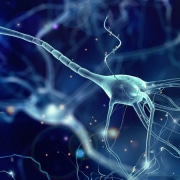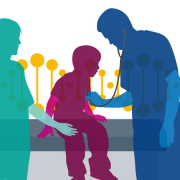GEP fellow contributes to The Network of Cancer Genes
The latest publication of the network includes the work of Dimitra Repana, funded by the programme to undertake research at The Crick Institute
The Network of Cancer Genes (NCG) is a comprehensive catalogue of known and candidate cancer genes. Initially launched in 2010, the latest (sixth) release sees a 1.5-fold increase in the number of genes listed and includes contributions by one of the programme’s fellows, Dimitra Repana. Below, Dimitra tells us more.
The drivers of disease
Cancer is the result of faults in genes (or mutations) that cause cells to multiply in an uncontrolled manner and become immortal. Thousands of mutations accumulate in the cells during cancer progression, but only some of them play a crucial role in driving the disease. These are often referred to as ‘cancer genes’ by those in the field, though it’s important to state that this is an over-simplification.
One of the goals of cancer genomics is to understand which genes contribute to the progression of which types of cancer; with a comprehensive database being the holy grail. Over the last decade, thousands of cancer samples have been studied. The large amount of information available makes it challenging for researchers, scientists and clinicians to keep an up-to-date knowledge.
Curating a database
The aim of our study is to collate the genes named in the plethora of published studies and investigate whether they share any common characteristics. To report our results, we have developed a user-friendly, interactive web portal that is freely accessible.
In total, we have curated the results of 275 studies from more than 100 cancer types and 34,905 patients. This enabled us to list 2,372 genes with a known or predicted role in cancer. We have also studied several of the characteristics of these genes, such as: conservation in the genome; evolutionary origin; RNA and protein expression; miRNA and protein interactions; protein function; and essentiality.
Exploring ‘cancer gene’ properties
The analysis of such a large number of studies allowed us to obtain a deeper understanding of the research that has been done in this field in the last ten years. We have observed that the identification of ‘cancer genes’ depends on the number of studied samples, on the cohort, and on the method that was used to determine them. We report marked differences across cancer types suggesting the important role of tumour biology. We have also observed that ‘cancer genes’ share common characteristics and differ from the rest of human genes. For example, they are expressed in a larger number of tissues, originated earlier in the evolution of life and are more essential for the survival of cells.
Overall, our results highlight the high heterogeneity of ‘cancer genes’ within and across cancer types. We also show that these genes form a distinct group and share common characteristics. The Network of Cancer Genes is a useful resource for the annotation of genes and can be used to prioritise those genes that warrant further investigation.
More information
Dimitra is one of the nine research fellows funded by the Genomics Education Programme to undertake genomics research projects. You can read more about the scheme and view our new resource about genomics in oncology on our website.









